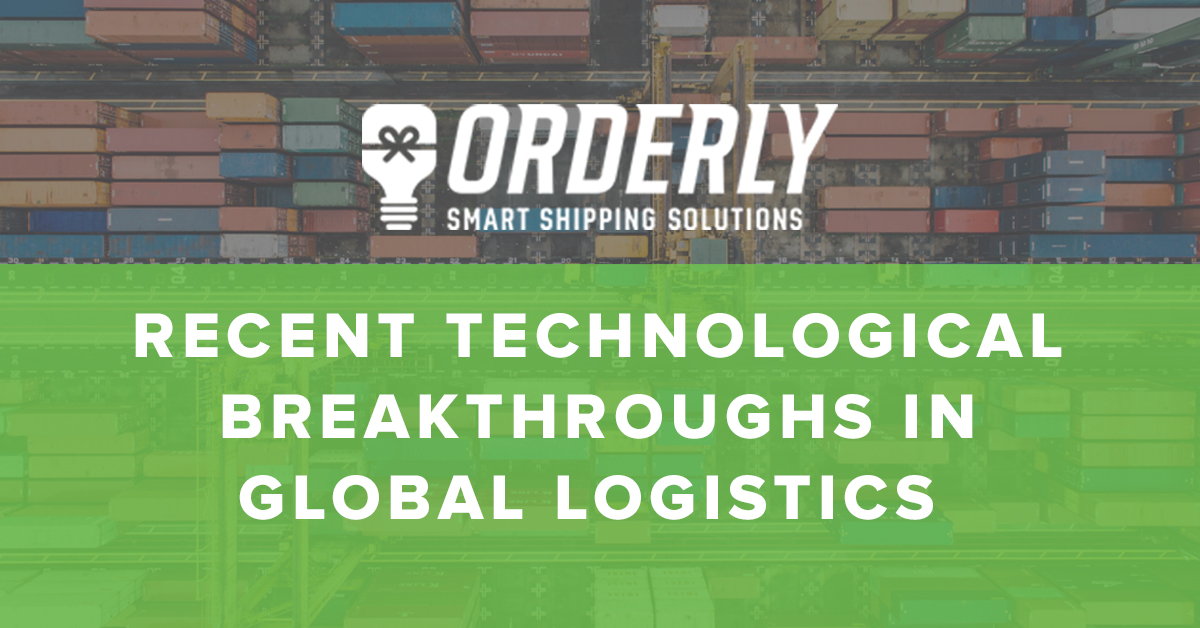The use of innovative technology has enabled global logistics specialists to better understand the mechanics of logistics, across geographies and modes. The potential of an automated, fully-digitized supply chain stands to deliver monumental benefits. The evolution of technology is pushing the limits and changing how the world conducts business. Today, we’re accustomed to everything being online and right at our fingertips for immediate access. It is possible to receive a package less than an hour after ordering, depending on where you live. Improved technology has also increased efficiency in the supply chain, minimizing costs and mistakes. These advances benefit all areas of the logistics industry: trucking transportation, international transportation (ocean and air), supply chain management, and shipment tracking. Here are five major technological advances that are changing the future of the logistics business.
The Future is Heading Towards:
- Autonomous Drones and Trucks:
Imagine a future where a computer drives your freight from pickup to delivery or you receive a package from a flying unmanned aerial vehicle. It sounds like something right out of a science fiction movie. This is where our logistics world is heading.
Autonomous trucks have the potential to increase efficiency in the delivery process. Autonomous cars are already a reality and trucks are not too far behind. There are many companies collaborating in this area with names like Uber and Tesla paving the way. Many logistics operations currently employ self-driving vehicles-from autonomous forklifts to small, driverless plant vehicles.
In the very near future, advanced technologies will allow for new forms of express consumer deliveries. . Drone deliveries are still a few years out due to regulatory measures and related costs. FedEx is working in collaboration with partners such as Alphabet Wing and Walgreens to make drone deliveries a reality. UPS has responded and is working with Zipline and CVS to roll out their solution. Amazon has announced a new version of its Prime Air drone delivery and is already making deliveries with this technology.
- Shipment Tracking Systems:
Internet of Things(IoT) is opening up many opportunities for the logistics supply chain, such as minimizing costs and delays by evading dangers. Sensors are built into cabs, cargo ships, trains, etc., and connect to an alarm system or dispatcher that is monitoring and tracking. These sensors transmit the information to the team who then gains insight into hidden risks. Although IoT isn’t an entirely new technology, it continues to impact the future of logistics, allowing for a more accurate in-transit visibility and delivery of goods.
Smart sensors that connect to the Internet of Things and are embedded into packages have increased FedEx’s potential to gather data into a shipments entire journey. This insight, through real-time analytics is very beneficial for shippers in verticals such as life science where cold chain data is imperative.
RFID technology, which has also been in use for a few years, is a popular labor-saving way companies can track their inventory. A tag or sensor is placed on the product and radio waves are sent out. The data is then received and processed by the company. Similar to RFID tags are barcodes, but the superior speed of information delivery and data processing of RFIDs is more appealing to businesses and the way technology is moving. Today, many companies are using RFID tags in their distribution warehouses to monitor containers.
- GPS Tracking is More Advanced Than Ever:
Gone are the days where you must use a proprietary or handheld display to monitor location data. Instead, you can use your smartphone. This means that companies can access the necessary systems and information from anywhere.
It’s still possible to access GPS systems from a conventional desktop computer or work-based terminal, but you now have the added option of mobile. Mobile support has revolutionized everything, especially regarding supply chain operations. This has enhanced decision making with absolute accuracy and reliability. Due to mobile connectivity, management teams can issue orders exactly when required, no matter what they’re doing or where they are themselves. This great productivity enhancement can be joined together by a robust series of field service and location-tracking software. This software leads directly to greater operational efficiencies and lowers associated costs. The benefits include improved fleet management, increased driver safety, better security, enhanced operational efficiency, improved customer service, more detailed cost analysis, and greater transparency.
With GPS, the accuracy of delivery is vastly improved, no matter how difficult the address is.
- Blockchain Technology:
The implementation of blockchain technology is one of the most prominent logistics trends gaining traction in the transportation and logistics industry. The use of this new technology allows the different players in the logistics industry to create a transparent and efficient system for recording transactions and managing all documents involved in the logistics process. This is expected to impact everything from warehousing to delivery to cash flow in a positive way over the next few years.
Contact Orderly Logistics for accurate and efficient means of transportation.


